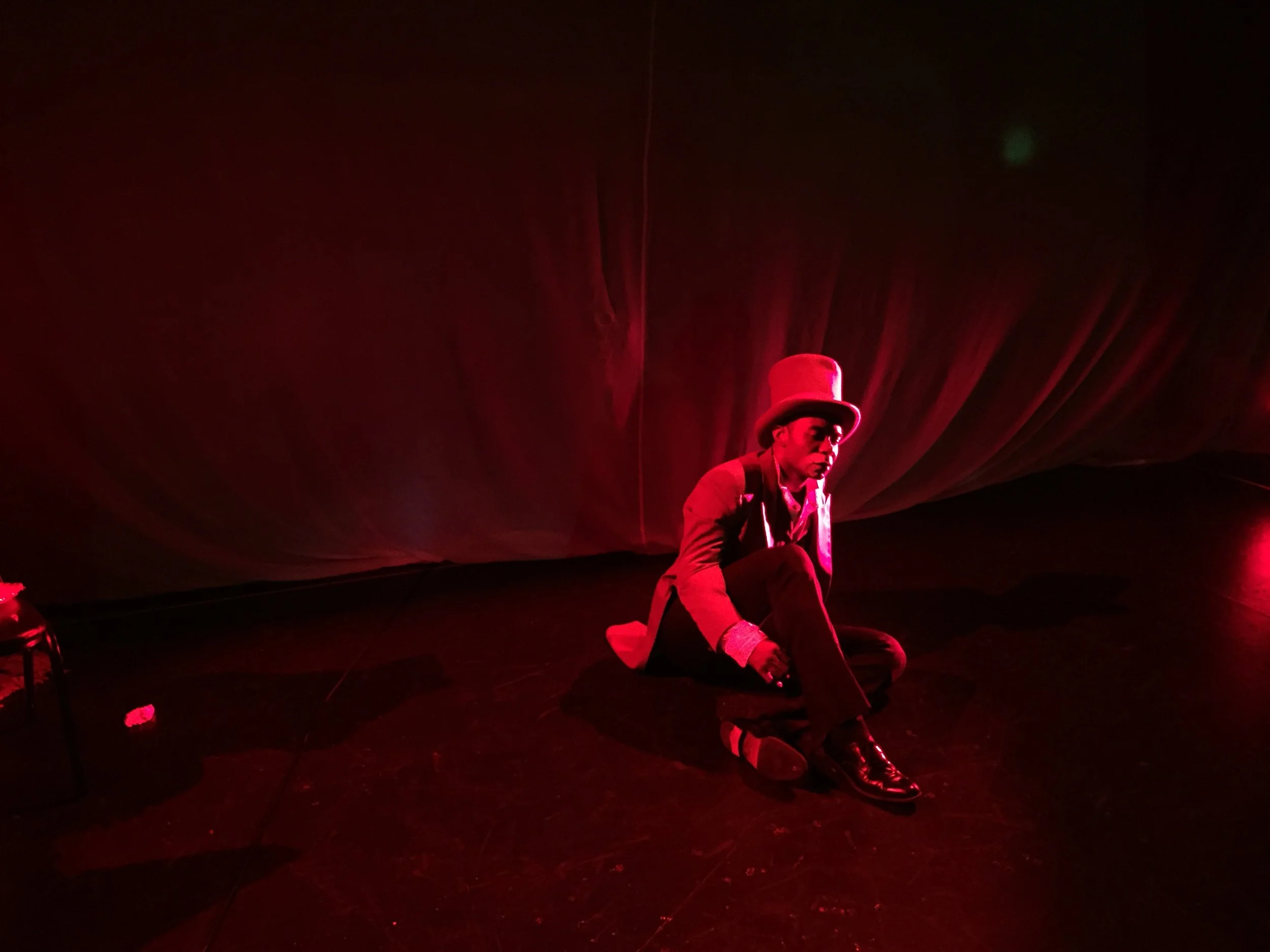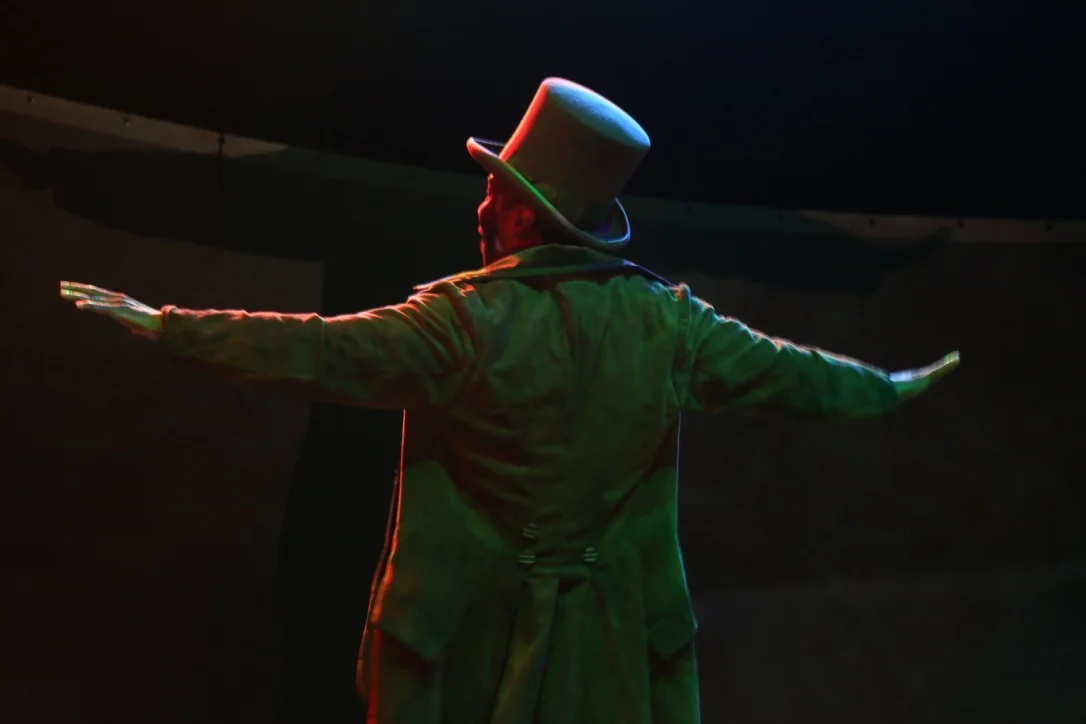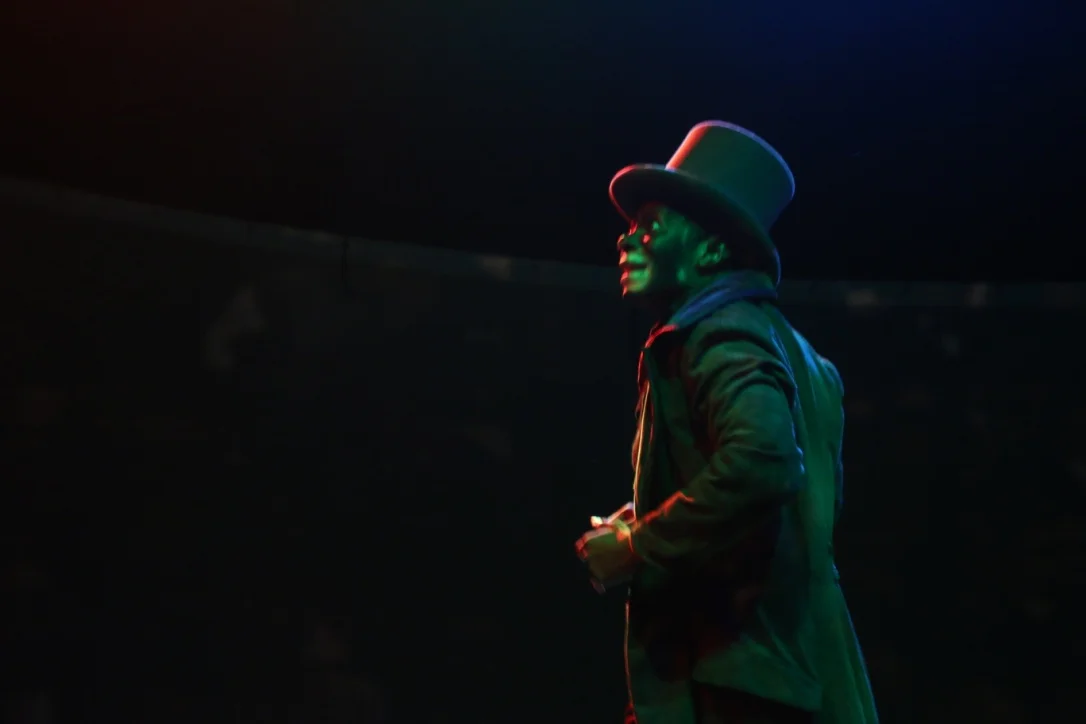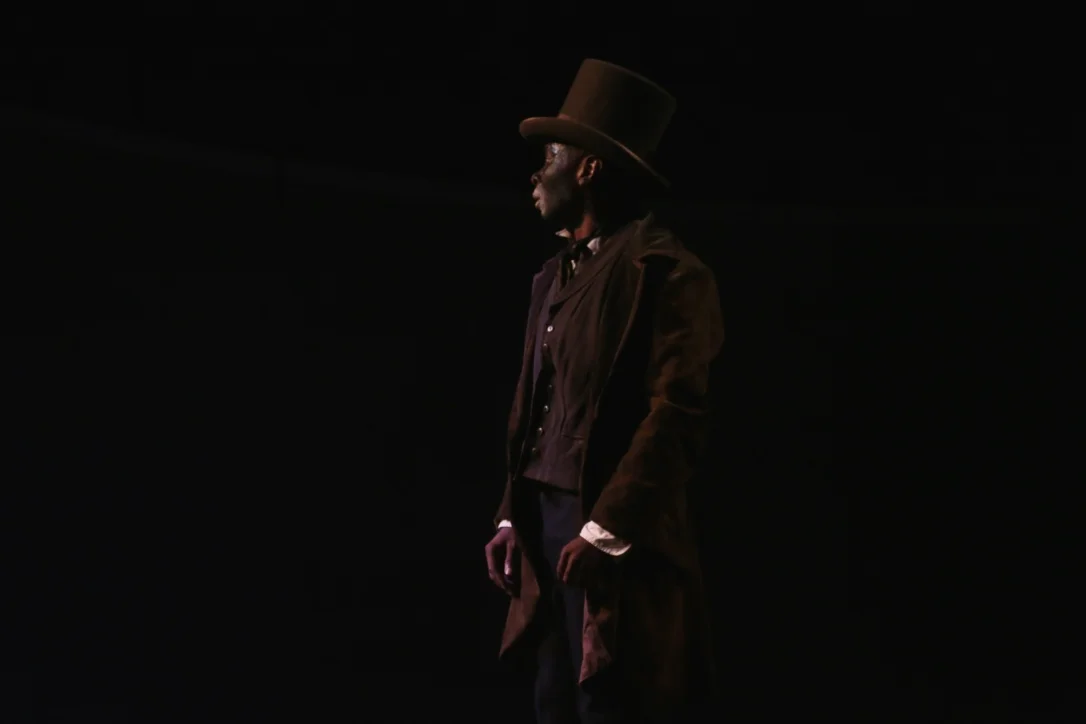
Edgar Arceneaux. “Until, Until, Until… (A Performa Commission),” (2015). Courtesy of the artist and Susanne Vielmetter Los Angeles Projects, Los Angeles. Photo: Lamont Hamilton.

Edgar Arceneaux. “Until, Until, Until… (A Performa Commission),” (2015). Courtesy of the artist and Susanne Vielmetter Los Angeles Projects, Los Angeles. Photo: Lamont Hamilton.

Edgar Arceneaux. “Until, Until, Until… (A Performa Commission),” (2015). Courtesy of the artist and Susanne Vielmetter Los Angeles Projects, Los Angeles. Photo: Lamont Hamilton.

Edgar Arceneaux. “Until, Until, Until… (A Performa Commission),” (2015). Courtesy of the artist and Susanne Vielmetter Los Angeles Projects, Los Angeles. Photo: Lamont Hamilton.
[](#)[](#)
The Past Never Returns
Speaking to Edgar Arceneaux and Frank Lawson about "Until, Until, Until…" a part of Performa 15
In 1981, the beloved dancer, actor, and singer Ben Vereen performed for Ronald Reagan’s inauguration before thousands of Republican revelers and countless more television viewers across the country. Vereen hoped to pay homage to the Vaudeville legend Bert Williams, who, because of the racist traditions of American theater, had to perform in blackface. Vereen’s attempt to venerate a pioneer of dance and song was also a larger critique of continued racism under the Reagan administration. Though Vereen used his national platform to explain to the audience the daily injustices faced by Williams, who, for instance, had to apply burnt cork to his face every night, these five minutes were edited out, and viewers only saw Vereen’s revival of the minstrel show. He received threats and was ostracized by his former fans who saw him as complicit in perpetuating racism, resulting in the ultimate crumbling of his career.
On November 20-22, the L.A.-based artist Edgar Arceneaux will premiere his first live performance project "Until, Until, Until…" as part of Performa 15 in New York City. With Vereen’s unedited intervention as a foundation, Arceneaux will reconsider this historical injustice for contemporary times. Frank Lawson, an accomplished singer, actor, and songwriter, will play the role of Vereen, and together, Arceneaux and Lawson will delve into deeply prescient questions that will surely amount to a landmark performance. While it is tragic that so little has changed, it is moments of critique like "Until, Until, Until…" that remind us of art’s ability to harness the past as an instrument of community building and productive introspection.
After "Until, Until, Until…," Arceneaux—represented by Susanne Vielmetter Los Angeles Projects—will have a solo show opening in January at Galerie Nathalie Obadia, Paris. He will also be included in group exhibitions at Galerie Thaddeus Ropac and the Mona Bismarck American Center, Paris, opening in March 2016. A two-person show with Wangechi Mutu as part of SITE Santa Fe’s 20th anniversary exhibition also opens in March of next year. Lawson is currently writing a new musical and will be lending his voice to a new animated series created by Seth Green.
**What brought you to this project?**
Edgar Arceneaux: The piece was inspired by seeing Ben Vereen’s performance 20 years ago. I was fortunate: almost no one had seen the full performance in 1981. I was really moved by it, and it struck me because I couldn’t believe how something like that could happen—doing a blackface performance in front of Ronald Reagan and 20,000 white Republicans. What strange, _Twilight Zone_ world of confluences produced this reality? It always stuck with me, and I was never able to forget about it.
When I was invited to make a new work with Performa, I told them I didn’t know what I would do because I don’t do performance, but I was at a kid’s birthday party that I wasn’t even supposed to be at and Ben Vereen was sitting there in the room. I was standing there looking at him, and I remembered that video from so many years ago. I thought, let me go and ask him about it, if serendipity means anything. I talked to him, and I could tell he was reluctant but I didn’t know why. I was, however, able to get a meeting with him, and I learned the story of the performance being cut in half and ruining his career. He got blackballed and threatened. These are the things that every artist fears, having your community turn against you when you were trying to do something for them.
So, I talked to Ben and he explained to me how it all happened. He had finished doing _Roots_ and had just come back from Africa. He thought America was ready for this conversation. Knowing that Reagan had fought against the civil rights movement, he hoped that this performance would have some positive effect on Reagan’s policies. Ben didn’t learn until two days later that America only saw him doing a minstrel show. That’s when the world turned upside down.
**Frank, what has it been like being tasked to reprise this historically fraught role?**
Frank Lawson: It has been an honor playing one of my idols—a star of the stage and screen who does it all. I’ve always admired Ben’s work, and he’s someone I’ve looked up to as a performer throughout my professional career. This offered me a chance to grow as a performer, to delve into all sorts of emotions and really begin to understand and convey what Ben went through during this period. As a performer, I’ve always shied away from dancing, but I’m now pushing myself beyond my expectations.
**What are some of these emotions that you are exploring?**
FL: I am an African American man who is performing in blackface, but at the same time, I am also an actor emulating both Ben Vereen and Bert Williams. So I’m engaging with the audience emotionally on so many levels, in different times and spaces. Any time you deal with blackface and the challenges that come with being an entertainer of color, there is always some pain and fear associated with it, but playing these brilliant artists gives me the opportunity to tap into so much joy and excitement as well.
EA: We are showing Ben as an older man. He is now in his late 60s, and he can’t dance that way anymore. He’s reflecting on the breakdown of the body and time, and he’s also thinking about some of the things he wasn’t able to do because of this performance. We try to delve into that emotional space. There’s also some levity and very funny parts to the show. We do allow for some lighter and sillier moments.
**Even though this is a new medium for you, Edgar, it does seem that you often deal with these issues—regret, the past, ghosts.**
EA: The past never returns. We only receive something that looks like the past, but it is something new. It’s how memory works. Every time you recall a memory, it’s actually a new event altogether. When dealing with the past, one must consider what has led us to this moment where history seems to become new again. What has led us as individuals, as a group, to have to deal with something that we thought was firmly put away? We are trying to explore how we live with these questions in the moment by telling the story of how Ben remembers it, not as a historical retelling. That’s where the idea of the ghost comes from. These memories come out in places where you don’t expect them; a trauma occurs and it triggers you.
**Is there a connection, then, between this individual trauma and a collective trauma?**
EA: I called Ben and I introduced him to Frank for the first time. Ben said to Frank, “Them denying me was a metaphor for a larger denial.”
FL: He was very appreciative that we were doing the piece. He said it wasn’t just for him, but also for the collective.
EA: Ben told Frank, “Don’t try to copy me. I’ve done this already, and now you have to make it your own. You have to be Frank when you occupy this role.” That was really beautiful, because you could tell that was he was passing the baton.
FL: That’s what you want to hear as a performer—that you have permission to be yourself, to integrate your own personality, movements, strengths, and flaws into the character. It definitely helps to deliver a more honest and powerful performance.
EA: It goes back to the larger point of keeping it squarely in the present. These things did happen in the past, but they have to be on their own terms when we deal with them now. He gave us permission to do that.
**Frank, how are you going to make the performance your own?**
FL: I have to let the movements inhabit me, and I have to let them come out of me the way they would come out of Frank, while still honoring Ben and honoring the choreography and what he had intended the audience to see. I have my own light, and I’m allowing it to shine.
EA: You can see the echo from a hundred years ago, from Burt Williams to Ben Vereen to now.
**What’s next for this performance?**
EA: We want to take the show to Washington, D.C., where the original performance took place, and I want to stage it before the next election. That’s really important to me.
"Until, Until, Until..." can be seen as part of Performa 15 Nov 20-22. Tickets are available [here](http://15.performa-arts.org/events/until-until-until).
